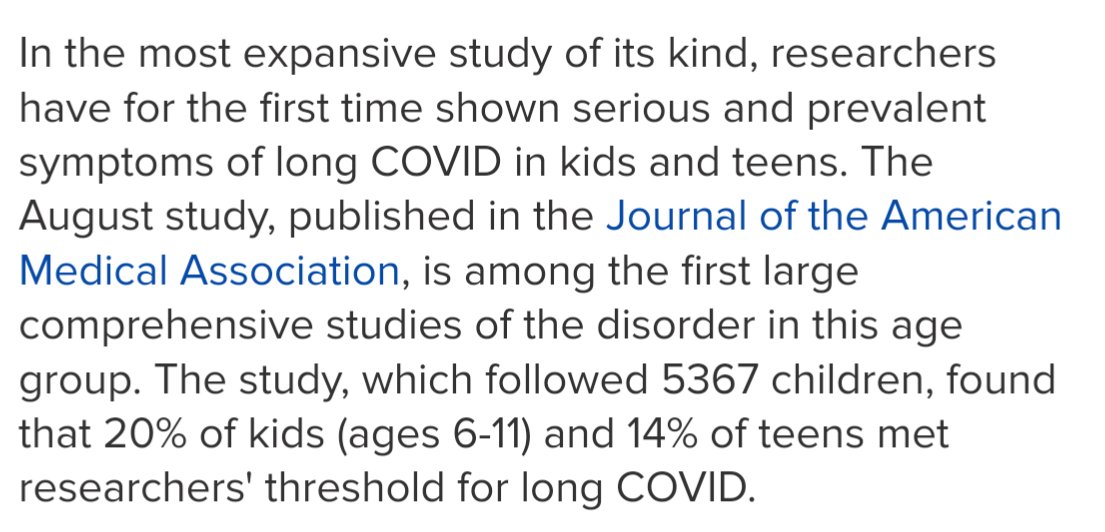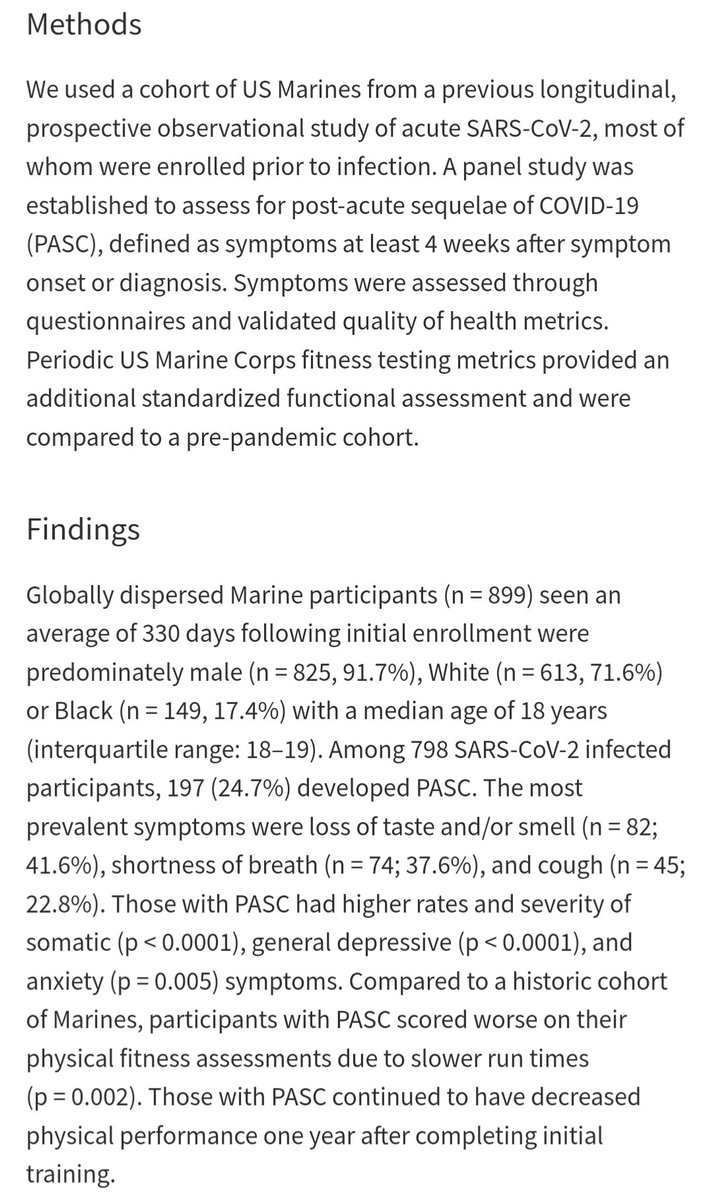When people talk about the devastation from COVID, they usually cite the number of people who died (7 million, 20 million, 30 million) or the economic cost ($14 trillion, $35 trillion, etc) but this pales in comparison to the true cost, something most people do not understand or talk about:
About 1 in 4 American adults have developed some type of long term health issues from their COVID infections. Data is limited, but it seems reasonable to assume this ratio is similar in other countries. 

It was once widely believed that children weren't nearly as affected, but recent research has shown that's sadly not the case, with a similar share of kids and teenagers having long lasting health problems from their COVID infections 

What's worse, there doesn't seem to be any reliable way to protect yourself from this besides avoiding infection. Vaccination has only a limited impact, and lifestyle is almost irrelevant: Even 18 year old US marines in peak physical condition developed long lasting health problems at a similar rate

In its mildest form, this might mean fatigue that lasts a few months. In the most extreme form, you might find yourself completely bed-bound, unable to work or care for yourself for months or years.
And no one - literally no one - understands what this is or how to fix it. There is no doctor, no scientist, no medical authority on the entire planet that can explain what's causing this or how to fix it, except to say that catching COVID is very bad.
No one knows if this is one disease state, or hundreds. If certain people are susceptible because of genetics, or environment, or if it's truly random. There are some hypotheses and some interesting findings, but nothing that even approaches a consensus.
And for that reason, no one knows what will happen to these people. We do know that these people are very likely to get reinfected with COVID, probably dozens more times over the rest of their lives. This may make their health issues worse, perhaps significantly so
What I find most disturbing about this is that the interest in figuring out the answers to these questions is almost non-existent. Funding for it is a mere pittance. Earlier this year, the NIH committed a mere ~$500M to research it: 

That might sound like a lot, but for comparison, the NIH commits over 5X as much annually to HIV research. I'm not arguing to reduce the HIV research budget, but the percentage of Americans with HIV is well less than 1%. HIV is much better understood - we know how to avoid it and how to treat it

There's a bill floating around Congress that would bump the amount dedicated to research up to a modest $1 billion a year. So far, it's gotten commitment only from Democrats, most of whom would be described as far left. With the recent election, who knows if it even stands a chance of passing.
And this is for a disease that, again, affects about a quarter of the public, that no one understands, and that is not going away. It's hard to describe the disconnect between leadership and reality as anything other than bizarre.
Given that we know that at least a quarter of people are susceptible, and that everyone is on track for infinite COVID reinfections, and that every reinfection may make these people worse, it's entirely plausible that we may soon be living in a world where a large chunk of the population is significantly disabled
This might not be likely, but again, no one can really say with any real authority what the odds are one way or the other. And if it does happen, it would be one of the worst health disasters in human history. And yet...there's just nothing from any of our leaders anywhere
#MAHA
• • •
Missing some Tweet in this thread? You can try to
force a refresh




